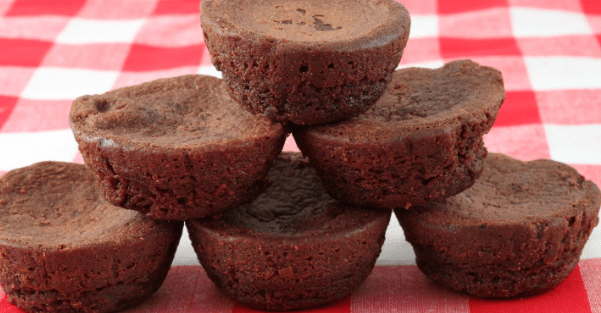
[cmamad id=”23465″ align=”center” tabid=”display-desktop” mobid=”display-desktop” stg=””]
Just one of these bite-size natural T-boosters can more than double men’s testosterone instantly…
—-Important Message—-
Pop one of these in your mouth for an instant testosterone boost

Why do men want an instant boost of their testosterone levels?
Well, the more testosterone a man has, the better his erections will be.
And his sexual performance will be better too.
With more testosterone, you can get erections faster and more often… And you will last longer during sex.
That’s why I’ve developed these Booster Bites for men… They deliver an instant T-boost.
You can pop one in your mouth right before you jump into bed with a woman…
Or while you’re driving home to meet your loving, waiting wife…
Basically, anytime and anywhere you want.
Booster Bites are great for when you’re on the go…
And right now they’re FREE.
Here’s how to get your hands on my best-selling Booster Bites right now.
———-
Boosts your natural T by 73% instantly (fully natural)
Lower urinary tract symptoms (LUTS) are the problems caused by an inflamed prostate… very common for older guys.
And guess what?
Low testosterone is also an epidemic for older guys.
Men with LUTS (prostate problems) often have low T.
So researchers looked into the effects of testosterone on lower urinary tract symptoms.
They found that testosterone is highly effective at improving lower urinary tract symptoms in men with low testosterone.
Testosterone supplementation also lowered the risk of cardiovascular problems.

Scientists in Germany, the United Arab Emirates, and the United States did this research. The journal Investigative and Clinical Urology published the results.
Lower urinary tract symptoms (LUTS) cause distress for many older men.
“Prevalence of LUTS is reported for among 15% to 60% of all men aged above 40 years of age.”
Some problems associated with lower urinary tract symptoms:
- Metabolic syndrome
- Obesity
- High blood sugar
- High blood pressure
And those symptoms are all associated with lower testosterone as well.
“As all these factors often occur in combination with T deficiency, functional hypogonadism might act as part of a causal relationship.”
This made researchers curious about the relationship between lower urinary tract symptoms and low testosterone levels.
The study looked at over 800 men diagnosed with low testosterone.
“We conducted a study with 805 symptomatic hypogonadal men with a baseline total testosterone level of ≤12.1 nmol/L.”
About half of the men began testosterone replacement therapy (TRT) to get their testosterone levels up.
“A total of 412 men underwent testosterone therapy and 393 men served as untreated controls.”
The men who used TRT received injections every 6 to 12 weeks.
“Patients who agreed to start TRT were treated with intramuscular injections at month-intervals after an initial 6-week interval.”
The researchers categorized the severity of lower urinary tract symptoms (LUTS) before the study began.
“LUTS severity was categorized. At baseline, mild LUTS (<8) was recorded in 615 patients, of which 253 underwent testosterone therapy and 362 served as controls.”
They assessed LUTS again later on.
Those follow-up assessments took place years after the testosterone supplementation began.
[cmamad id=”23466″ align=”center” tabid=”display-desktop” mobid=”display-desktop” stg=””]
All of the men receiving testosterone had a significant improvement in their lower urinary tract symptoms.
“During a follow-up period of 8 years, a significant improvement of LUTS was noted for all testosterone-supplemented patients.”
There was no such luck for men who did not receive testosterone.
“The control groups showed deterioration or fluctuation around initial values.”
Testosterone supplementation stopped the progression of lower urinary tract symptoms.
“Testosterone replacement fully prevented worsening of symptoms.”
And testosterone supplementation also led to a significant improvement in many other markers of health.
“We also found a considerable improvement in glycemic control, blood pressure, C-reactive protein, and quality of life.”
Testosterone was most beneficial for men with more severe lower urinary tract symptoms.
“Effect size of testosterone supplementation was more pronounced in men with moderate to severe lower urinary tract symptoms than those with mild symptoms.”
The researchers found testosterone supplementation safe and effective for men with low testosterone and lower urinary tract symptoms.
“Correcting hypogonadism by testosterone supplementation is highly effective and safe for improving LUTS in hypogonadal men.”
The secondary results show that testosterone supplementation could significantly lower the risk of cardiovascular problems in these men.
“Testosterone supplementation may also improve cardio metabolic risk and major adverse cardiovascular events.”
Lower urinary tract symptoms may be an indicator of low testosterone.
You should consult a healthcare professional about treating and diagnosing health-related problems.
But if you can NATURALLY increase your testosterone levels, chances are that sex, health – and, YES, prostate symptoms – will improve!
—-Important Message: Want An Instant Testosterone Boost?—-
Booster Bites are great for when you’re on the go…
And right now they’re FREE.
Here’s how to get your hands on my best-selling Booster Bites right now.

———-

- Hypogonadal men with moderate to severe lower urinary tract symptoms have a more severe cardiometabolic risk profile and benefit more from testosterone therapy than men with mild lower urinary tract symptoms https://www.icurology.org/Synapse/Data/PDFData/2020ICU/icu-59-399.pdf
- Pathophysiology of Lower Urinary Tract Symptoms in the Aging Male Population https://www.ncbi.nlm.nih.gov/pmc/articles/PMC1477625/
- The Prevention of Lower Urinary Tract Symptoms (PLUS) Research Consortium: A Transdisciplinary Approach Toward Promoting Bladder Health and Preventing Lower Urinary Tract Symptoms in Women Across the Life Course https://plusconsortium.umn.edu/sites/plusconsortium.umn.edu/files/harlow_b._et_al._plus_transdisciplinary_approach_journal_of_womenshealth_march_2018.pdf
